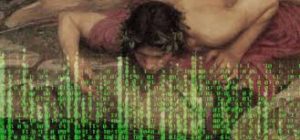In other words, such attempts further compound the problem of considering a seemingly objective universe, and describing it in an objective fashion.
The universe is a spiritual or mental or psychological manifestation, and not, in our usual vocabulary, and objective manifestation.
There is presently no science, religion, or psychology that comes close to even approaching a conceptual framework that could explain, or even indirectly describe, the dimensions of that kind of universe. Its properties are psychological, following the logic of the psyche, and all of the physical properties that we understand are reflections of those deeper issues. Again, each atom and molecule — and any particle that we can imagine — possesses, and would possess, a consciousness. Unless we accept that statement at least as a theory upon which to build, then much of my material would appear meaningless.
That statement, therefore, must be the basis for any scientific theories that hope to accomplish any performances at all leading to an acquisition of knowledge.
Since I must use an objective vocabulary I am always seeking for analogies. By objective I refer to the use of language, the English language, that automatically sets up its own screens of perception — as of course any language must do to some extent.
The universe expands, as an idea expands; and as sentences are built upon words, in our terms, and paragraphs upon sentences, and as each retains its own logic and continuity and evidence within that framework, so do all the portions of the universe appear to us with the same cohesiveness — meaning continuity and order. Any sentence is meaningful. It seems to fall in order by itself as we say it. Its order is obvious. That one sentence is meaningful because of its organization of letters, or if it is spoken, its organization of vowels and syllables. It make sense, however, not only because of the letters or vowels or syllables that it excludes.
The same applies to our universe. It has meaning, coherence and order not only because of those realities that are obvious to us, and that appear, but also because of those inner realities that are “unspoken,” or hidden. I am not speaking merely of hidden variables, in scientific terms, nor am I saying that the universe is an illusion, but a psychological reality in which “objectivity” is the result of psychological creativity.
It is not just that our view of reality is relative to our position within the universe, but that the universe itself is different according to our position within it, and that spiritual or psychological rule apply. The universe deals with different kinds of order, perceptions, and organizations, each dependent upon the others, yet each separate in its own domain.
In our realm of reality, there is no real freedom but the freedom of ideas, and there is no real bondage except for the bondage of ideas, for our ideas form our private and mass reality. We want to examine the universe from the outside, to examine our societies from the outside. We still think that the interior world is somehow symbolic and the exterior world is real — that wars, for example, are fought by themselves or with bombs. All of the time, the psychological reality is the primary one, that forms all of our events.
It is not to say that we cannot understand the nature of the universe to some extent, but the answers lie in the natures of our own minds, in the processes of individual creativity, in studies that ask questions like: “Where did this thought come from? Where does it go? What effect does it have upon oneself or others? How do I know how to dream, when I have never been taught to do so? How do I speak without understanding the mechanisms? Why do I feel that I have an eternal reality, when it is obvious that I was physically born and will physically die?”
Unscientific questions? I tell you that these are the most scientific of all. To some extent the attempt on the part of science to consider such material may possibly bring about those qualities of true scientific intuition that will help science bridge the gap between such divergent views as its own and ours.






